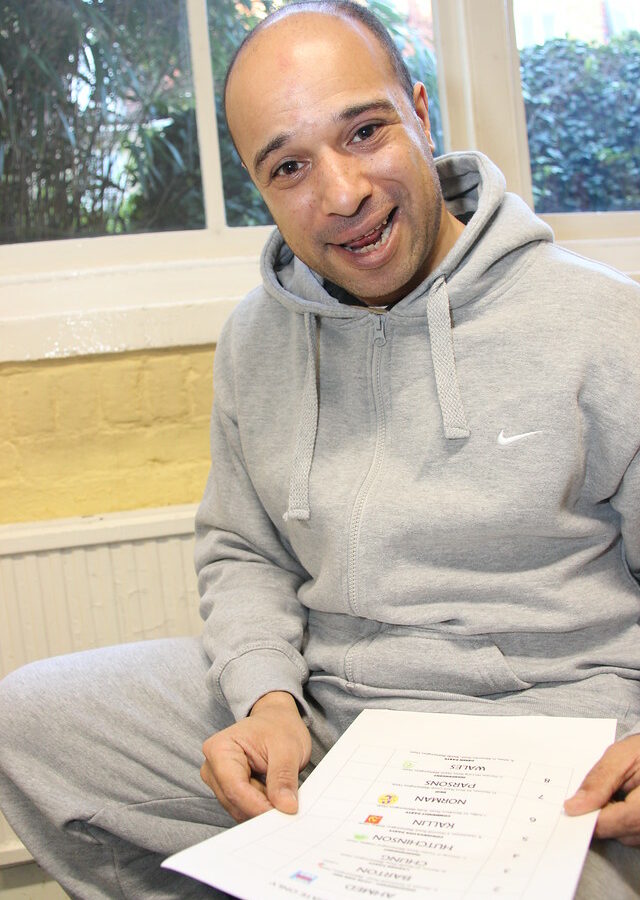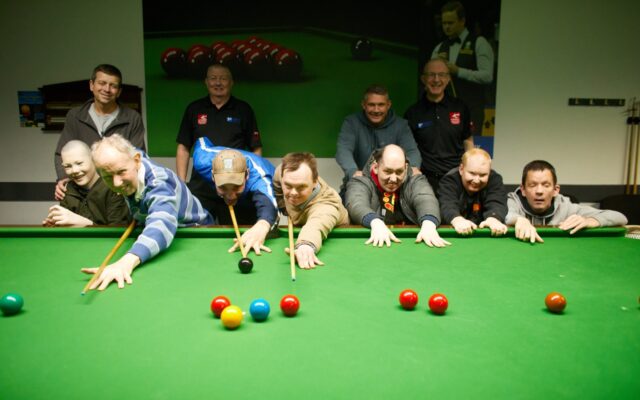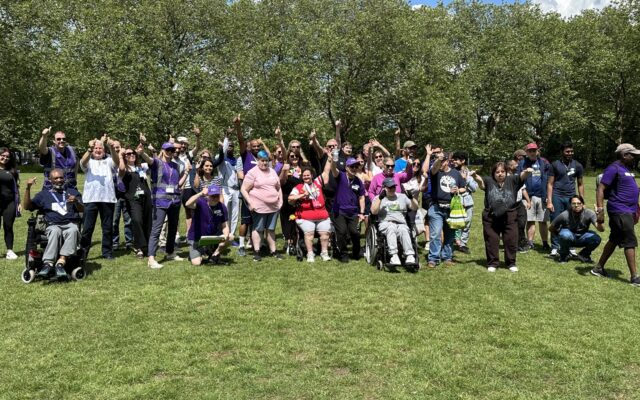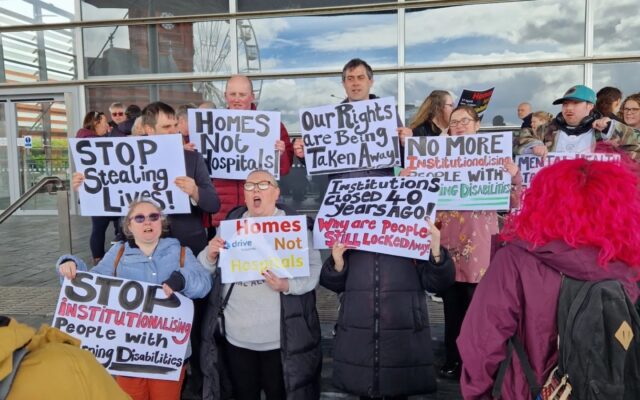People with learning disabilities are among the most at-risk groups for contracting Covid-19 and experiencing the knock-on effects of lockdown. Charities and disability organisations are raising the alarm that many people with learning disabilities are not faring well in the crisis, as our social order consistently fails our most vulnerable citizens. The impression given in the media is overwhelmingly one of people with learning disabilities as passive victims.
We put people in media silos, where only some are ever credited as narrators. Even on sites targeting the learning disability sector, stories are surprisingly absent, with an overwhelming focus on information. Telling us how to wash our hands and maintain social distance do not teach and nourish us in the way that stories do, told authentically by people themselves in their own unique ways.
Surviving Through Story is a partnership between the Open University, Generate UK and the Three Ways School in Bath that seeks to change this perception. Our Facebook page reached 219,000 people in 10 weeks and our ongoing training has been attended by up to 90 people at a time. Our website features stories, artwork, films, photos and tributes to friends and loved ones. The 1940s were a previous time of major crisis; but how many people know about the role played by people with learning disabilities in the war effort? The evidence is sparse, but research has unearthed references to army volunteers, engagement in rebuilding and taking on the roles of workers (Paddle, 1946; Grove et al, 2010)
How are people with learning disabilities responding to the coronavirus emergency? Is there anything we can learn from them about how to build resilience? Here are a few examples. Young people with learning disabilities, supported by the charity Generate UK, have been working on food box deliveries to support the community. Robin Meader, artist and member of Openstorytellers, a Somerset-based storytelling performance group, carried on sturdily at his local supermarket, and was named a frontline Sainsbury’s hero.
Some families say that, while some doors were closing, others were opening. Louisa Smith* started enjoying long bike rides and exploring changes to her artwork. Nem Brown* from L’Arche Manchester reports members have embraced Zoom, learning skills, maintaining friendships and social contacts, and having signed conversations. One message is that people with learning disabilities are like everyone else. Another is about compassion, thoughtfulness and kindness. Take Sharon Green*, writing about the unexpected death of her husband and reaching out to others:
“Before he died, the lockdown started and that meant we couldn’t go out any more together. He found it hard because, before he was ill, we couldn’t go out to celebrate his birthday. It was very hard for me that he passed away because I really did love him and he was my soulmate. I just wish he was still here with me… To help other people, I would say that, even though your husband has gone, try to think of all the good memories and good times you had and the good life you had. Desmond was the best husband in the world and I will always have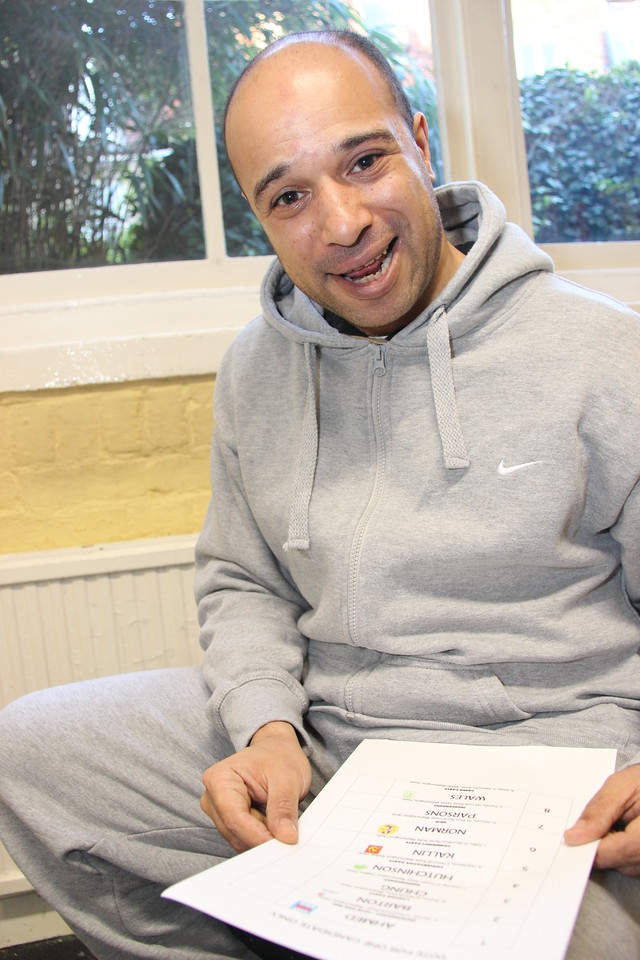 that.”
that.”
It is rare to see real experiences in the media although, in the Guardian, Rory Kinnear’s (2020) account of the life of his sister Karina, who died of Covid-19, and Shaun Webster’s testimony, featured in Saba Salman’s book (pages 16-17) and the Guardian (2020), are exceptions. Neither the BBC (Covid Chronicles) nor ITV (Get Britain Talking) responded to a request to feature the voices of people with learning disabilities, and omitted them altogether.
It is vital we recognise people’s achievements, experiences and contributions, rather than allowing these to disappear into the mists of time. As Pat Charlesworth of the Foundation for People with Learning Disabilities puts it: “There are ways of finding out things through storytelling you can’t find in other ways. This website can go on when Covid is over because people have stories right through their life, right through toddler years and teenage years and adults.”
*Not their real names
● Surviving Through Story: www.survivingthroughstory.com; f www.facebook.com/ survivingthroughstory/
Additional material by: Liz Tilley, Sue Ledger, Open University; Beverley Dawkins, Generate UK; Flo Hopwood and Katrina Arab, Three Ways School (Bath)
References
Grove S, Grove N, Myerscough T (2010) Intellectual disabilities and war: issues for consideration. Journal on Developmental Disabilities 16(1):82-90
Paddle KC (1946) Botleys Park Mental Deficiency Colony, Chertsey, Surrey, England, during the war, 1939–1945. American Journal of Mental Deficiency 51(2): 306–313
Kinnear R (2020) ‘My sister died of coronavirus. She needed care, but her life was not disposable.’ Guardian https://tinyurl.com/ycctsc5u
Webster W (2020) “My learning disability is a bit of me, but it doesn’t define me.” Guardian https://tinyurl.com/y2abbvql


